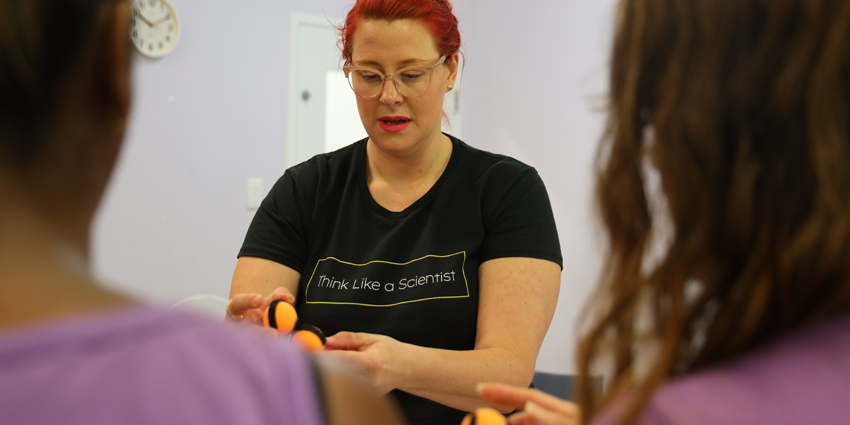
The Think Like a Scientist sessions come under a Department of Justice partnership with Curtin University, which designed the program to help prisoners explore new areas of interest and develop critical thinking.
The initial workshops took place at Bandyup Women’s Prison, Casuarina Prison, Eastern Goldfields Regional Prison and Greenough Regional Prison.
Among the topics on offer were astronomy, the nanoverse, the science of sound, animals and fossils, being human, chocolate, and rocks and minerals.
Prisoners took part in hands-on workshops, exploring scientific principles with items like straws, balloons, styrofoam balls, small animal skulls, anatomical models and even various kinds of chocolate.
“These science workshops help prisoners decode the technological world, to prepare for life after prison,” Department External Partnerships Coordinator Dr Fiona McGregor said.
“We know that the characteristics of someone who successfully desists from crime are similar to someone who is a successful learner,” Dr McGregor said. “So if we can support the learning process we are also supporting prisoners in moving away from a life of crime.”
Think Like a Scientist was inspired by a similar program in the United Kingdom.
“It’s an invitation to think like a scientist in everyday life,” Curtin University’s Dr Alison Blyth said. “To recognise that you don’t have to have a degree, you don’t have to have a white coat and that everyday things can be understood through science.
“Participants were encouraged to ask questions, make arguments, think independently and analyse,” Dr Blyth said. “They embraced everything we offered and engaged fully. It was a 100 per cent positive experience.”
A prisoner who attended several workshops said she was particularly fascinated by astronomy. “It was pretty mind blowing when I discovered how connected Western science is to Aboriginal ideas. It was like the other side of Dreamtime,” she said.
“I have definitely benefitted from this as it’s not stuff I would normally do. It’s taken me out of my comfort zone and I’ve learnt something different.”


